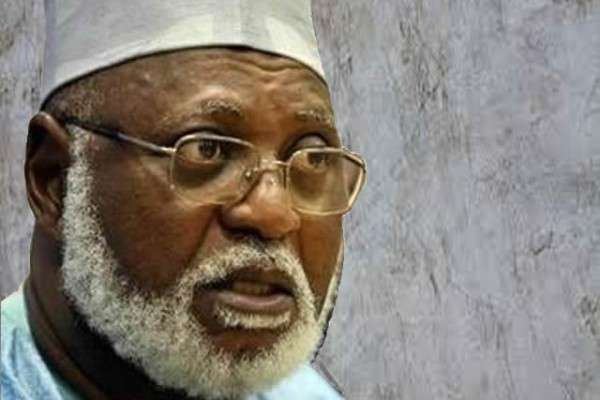
A former Head of State, Abdusalami Abubakar, said on Wednesday that there are over six million weapons in the country.
Mr Abubakar, a retired general, spoke during a meeting of the National Peace Committee (NPC) in Abuja.
The meeting was attended by the Sultan of Sokoto, Sa’ad Abubakar, Governors Kayode Fayemi of Ekiti State and Simon Lalong of Plateau State, religious and military leaders.
Mr Abubakar, who said President Muhammadu Buhari was aware of the meeting, expressed concern over the proliferation of arms, saying it was the reason insecurity in the country has heightened.
He said the security challenges in the country had led to about 80,000 deaths and close to three million Internally Displaced Persons (IDPs).
“The proliferation of all calibre of weapons not only in our sub-region in general and in Nigeria in particular is worrying. It is estimated that there are over six million of such weapons in circulation in the country. This certainly exacerbated the insecurity that led to over 80,000 deaths and close to 3 million IDPs,” Mr Abubakar said.
The former Nigerian leader, who served as the country’s de facto president between 1998 and 1999, said the challenges confronting the country “were not only security in the narrow sense of the military definition”.
He listed the challenges to include the Boko Haram insurgency, banditry, kidnapping, rising poverty; calls for balkanisation of the country from different quarters; threat of hunger arising from insecurity that farmers have faced and continue to face, increasing sense of collective despair and despondency among the populace.
Mr Abubakar said the country must find a way to resolve these challenges.
“We believe Nigeria must find a way out of these problems,” he said. “Our hope is that perhaps among us by listening to your different perspectives, we can begin to build up confidence among our people so that we can hold together.”
“So our hope is that we shall not only share our collective lamentations about the current situation but proposed some concrete suggestions that can point the way forward, suggestions that can inspire more confidence among our people and ensure that our country remains one.”
Mr Abubakar was Chief of Defence Staff between 1993 and 1998. He succeeded the late dictator, Sani Abacha, and helped Nigeria navigate its way to democracy in 1999.
PREMIUM TIMES








































